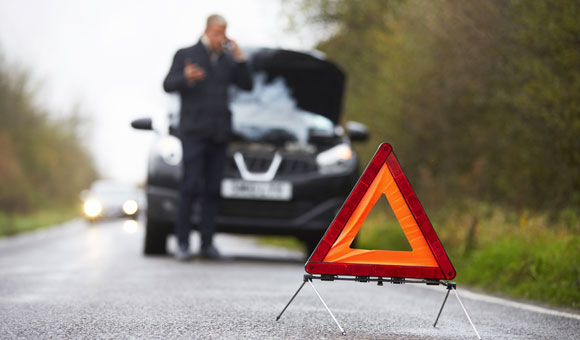Guide to Fleet Insurance
21/01/2021by Mark McKenna21/01/2021Guide to Fleet InsuranceBluedrop Services


Updated: 21/01/21
Many businesses out there own a number of cars, vans, lorries, or HGVs that they rely on each day for business survival. Managing this 'fleet of vehicles' can be hugely expensive for any business, and one of the expenses that sometimes seems harder to control is the cost of motor fleet insurance.
In this guide you will find out exactly what you need to know about fleet car insurance, as well as the policy terms that will minimise your risk, and therefore overall costs.
Firstly - What is Fleet Insurance?
Fleet insurance involves bulk buying your vehicle insurance from a single supplier, which is why in turn you are rewarded with a discount. It can cover both small and large fleets of commercial vehicles. In fact, with Bluedrop Services you can insure anything from two vehicles upwards on one policy.
Your business fleet can be small or large and worth anything from millions to a few thousand pounds. Either way you will still benefit from reduced premiums and hours of administration, making the whole process much more manageable.
Fleet insurance policies are designed to be efficient and easier to manage compared to having numerous different insurance policies for individual vehicles. Fortunately specialist insurance brokers, such as Bluedrop Services, limit the burden of fleet car insurance by increasing the flexibility of the policy to cover an assortment of vehicles and drivers on one policy.
This means you benefit from having just one renewal date and payment date to administer.
So what do you need to know before purchasing your fleet policy and how can you minimise your risk as well as costs?
What does fleet insurance cover?
Fleet insurance covers business vehicles for damages that are caused by fire, theft or road incidents, covering damage costs for both your business vehicles and other road users. The level of cover your vehicles receive is dependent on the type of cover you opt for. Some insurances can provide the following:
- Theft of damages to your vehicles
- Breakdown recovery in event of an accident of breakdown
- Legal fees
- Damage to windscreen or windows
- Replacement keys if lost or stolen
- Support towards medical expenses if your driver or passenger is involved in an accident
- Driving abroad
- A courtesy car offered if the vehicle is in for repair
Assess your fleet insurance needs
In order to gain the best insurance for your needs you need to take into account your fleet size and assess the frequency of use of your vehicles.
Each of these factors will influence your fleet insurance costs. Knowing this information will help you to understand your requirements and ensure you do not end up paying out for unnecessary components within your coverage and make sure you get the best out of your fleet vehicle insurance.
Insurance type depends on fleet vehicle usage

In order to get the correct fleet insurance policy you need to consider the usage of your vehicles.
For example, if you run a taxi fleet you will need either public or private hire insurance. If your business carries goods then you will either need ‘carriage of own goods’ to cover tradesman’s tools or company products being transported.
‘Haulage insurance’ is needed for those businesses offering long distance hire and reward services, and ‘courier van insurance’ is the correct type of fleet vehicle insurance for local multi-drops of hire and reward services.
This is where without the right knowledge choosing your policy can become a bit daunting. However, a specialist insurance broker can advise and offer their expertise to make sure you have the right fleet vehicle insurance in place when you need it most, as well as advising on how to keep your fleet car insurance premiums down.
Ways to reduce fleet insurance premiums
There are a number of ways Fleet Managers can actively reduce their risk. This will in turn reduce the number of annual claims they make and therefore reduce fleet premiums. Unless they are required, you should also consider the fact that the latest in high-tech vehicles will push up insurance premiums.
Watch our video guide below to discover a few of the best methods...
Make sure your policy covers ‘any vehicle’
When you are looking for your insurance it can be best to cover ‘any vehicle’ which will offer you the maximum protection. This is particularly important for larger fleets where vehicles will come and go throughout the life of the policy.
Should you forget or accidently miss updating your policy and a vehicle is involved in an accident then your claim can be invalidated without this feature.
Consider an ‘any driver’ policy
A fleet insurance any driver policy, opposed to a named policy, will allow each of your vehicles to be driven by any of your drivers. This will provide you with complete flexibility in managing your fleet.
Many insurance providers are only willing to insure drivers over the age of 25 with any driver policies. With a true any driver policy, which you can find with a specialist insurance broker, you can insure any age.
Invest in public liability and breakdown assistance

When your vehicles are critical to the survival of your business then breakdown cover may be an essential requirement to add to your fleet insurance.
Public liability insurance however is even more critical. This protects you and your business against any claims for injury or accidental damage caused as a result of you or your driver’s negligence. Any business should consider this additional feature as a public liability claim could potentially put you out of business if you were left to settle a compensation claim.
Keep your fleet insurance broker up to date
Fleet car insurance is perfect for a growing business where alterations can easily be made throughout the lifetime of the policy. But it is important to relay these changes to your provider to ensure your policy is up to date. Adding new vehicles or drivers as they are taken on is something that Bluedrop Services will administer at no extra charge.
Return to guide menuWant to find out more about Bluedrop's fleet insurance?
Industry updates, helpful guides and useful information from our experts.
SubscribeBook your FREE Insurance Review for expert advice tailored to your business
Request Review Privacy and Cookie Policy
Privacy and Cookie Policy  Terms of Business
Terms of Business  Making a Complaint
Making a ComplaintIf you are unhappy with our service we have a complaints procedure, details of which are available on request by contacting us on 01489 222 897 or alternatively by clicking Make a Complaint above.
You may be able to refer a complaint to the Financial Ombudsman Service (FOS) if you are unhappy with how we deal with your complaint. The FOS website is www.financial-ombudsman.org.uk
Bluedrop Services (NW) Limited Company No: 7287668 Registered Office: Unit 4 Flanders Road, 1st Floor West Wing, Royal London Park, Hedge End SO30 2LG.
Bluedrop Services (NW) Limited is authorised and regulated by the Financial Conduct Authority. Registration No. 530244. You can check our registration by contacting the FCA on 0800 111 6768 or by visiting www.fca.org.uk/register.

